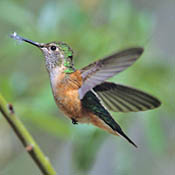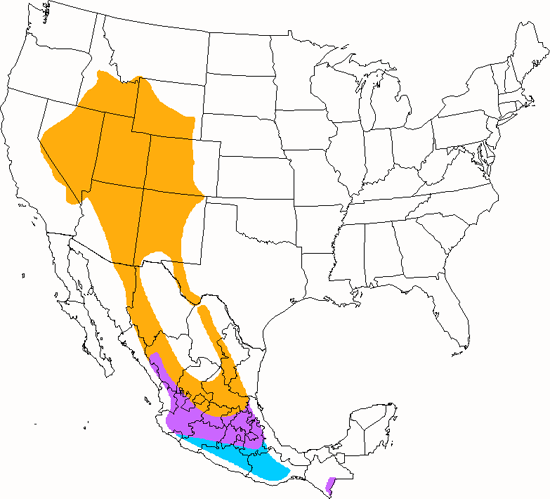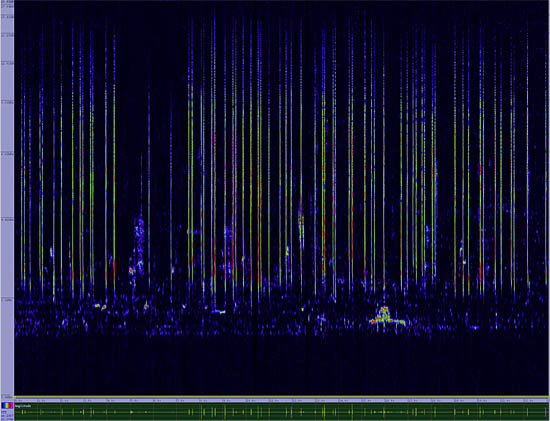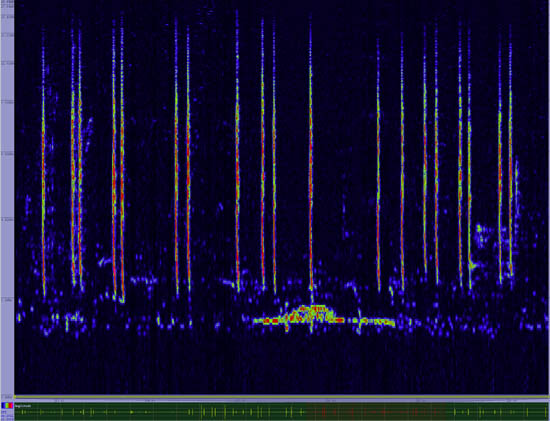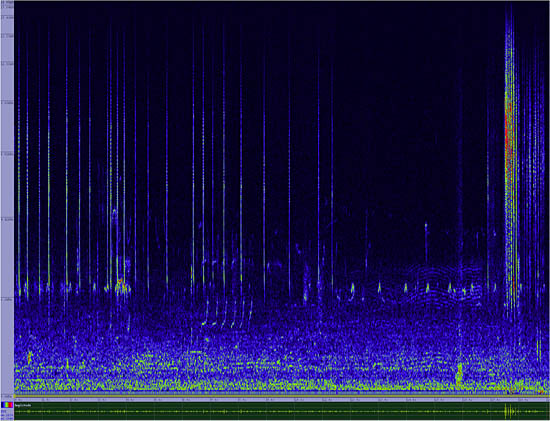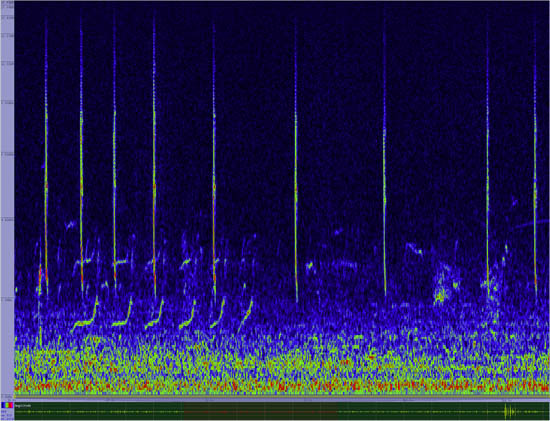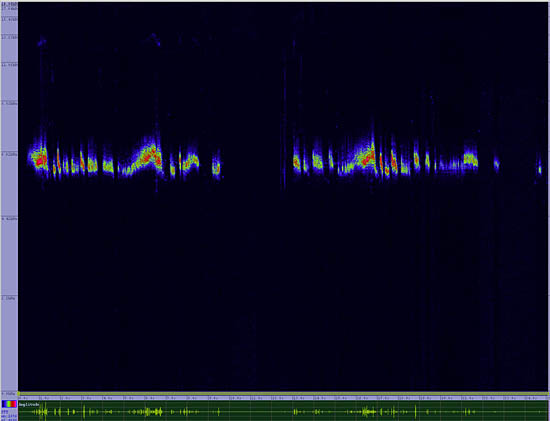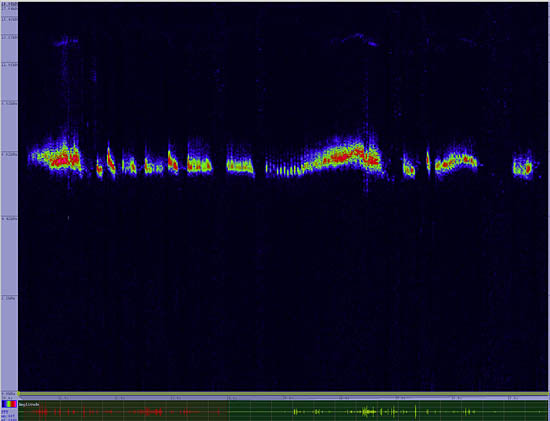Broad-tailed Hummingbird
Selasphorus platycercus

Hummingbird
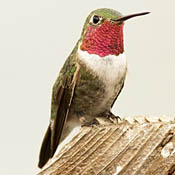
Length: 4 in. (10 cm )
This species is characteristic of mountain meadows, and the distinctive trilling whistle of the male can be heard easily as it hovers near low flowers or flies full speed high over head. This loud trill is made by air moving quickly through gaps in the wing tip feathers. The nest is tended only by the female and is a tiny cup made of spider webbing, lichens and plant down. It is placed on a horizontal branch, often in a shrub near a mountain stream. Food is flower nectar, insects and spiders caught on leaves, and occasionally tree sap.
The four-digit banding code is BTLH.
Bibliographic details:
- Article: Broad-tailed Hummingbird
- Author(s): Dr. Biology
- Publisher: Arizona State University School of Life Sciences Ask A Biologist
- Site name: ASU - Ask A Biologist
- Date published: 13 Jul, 2017
- Date accessed: 5 November, 2025
- Link: https://askabiologist.asu.edu/activities/bird/broad-tailed-hummingbird
APA Style
Dr. Biology. (Thu, 07/13/2017 - 15:36). Broad-tailed Hummingbird. ASU - Ask A Biologist. Retrieved from https://askabiologist.asu.edu/activities/bird/broad-tailed-hummingbird
Chicago Manual of Style
Dr. Biology. "Broad-tailed Hummingbird". ASU - Ask A Biologist. 13 Jul 2017. https://askabiologist.asu.edu/activities/bird/broad-tailed-hummingbird
MLA 2017 Style
Dr. Biology. "Broad-tailed Hummingbird". ASU - Ask A Biologist. 13 Jul 2017. ASU - Ask A Biologist, Web. https://askabiologist.asu.edu/activities/bird/broad-tailed-hummingbird
Be Part of
Ask A Biologist
By volunteering, or simply sending us feedback on the site. Scientists, teachers, writers, illustrators, and translators are all important to the program. If you are interested in helping with the website we have a Volunteers page to get the process started.



